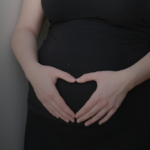The US Preventive Services Task Force (USPSTF) issued recommendations that all pregnant and postpartum women should be evaluated in order to determine risk for depressive illness and recommends that women at increased risk for perinatal depression should be referred for counselling. While these recommendations focused primarily on the utility of cognitive-behavioral therapy (CBT) and interpersonal therapy (IPT) in this setting, it is important to note that other behavioral and psychotherapeutic interventions may be useful and effective.
Felder and colleagues explore the use of mindfulness training in a group of pregnant women. The participants in this study were drawn from a study of an 8-week mindfulness-based program focusing on stress, depression, and excessive gestational weight gain compared to treatment as usual (TAU) in a racially and ethnically diverse group of overweight or obese, predominantly low-income pregnant women (n = 215).
Women who were 12–19 weeks gestation were eligible to enroll in the intervention of mindful moms training or MMT. Women who were 20–23 weeks gestation or unable to attend MMT classes who otherwise met the study criteria were eligible for TAU. The Patient Health Questionnaire (PHQ-9) was used to measure depressive symptom severity at baseline, post-intervention during the third trimester, and at 6 and 18 months postpartum.
MMT was adapted from three interventions: mindful motherhood training (Vieten, 2009), Supporting Health by Integrating Nutrition and Exercise, and Mindfulness-Based Eating Awareness Training (Kristeller & Wolever, 2011). Women attended eight weekly 2-hour mindfulness training sessions. In addition to mindful eating exercises, the program included mindfulness training for stress reduction using both formal (e.g., sitting meditation) and informal (e.g., mindfulness of daily activities) practices to promote nonreactivity to and nonjudgmental acceptance of negative experiences.
Results
The researchers identified three distinct subgroups of depressive symptom severity during the perinatal period: none/minimal (20.9%, mean PHQ = 0.95, SD = 0.73), mild (52.9%, PHQ = 4.28, SD = 1.53), and moderate (26.2%, PHQ = 10.23, SD = 2.76). Adjusting for relevant covariates, the risk of having moderate depressive symptoms was reduced by nearly 90% in participants receiving the MMT intervention (OR = 0.13, 95% CI = 0.03-0.54).
The Bottom Line
In this population of overweight and obese women, this mindfulness-based intervention delivered during pregnancy reduced the risk of experiencing moderate depressive symptoms up to 18 months postpartum. Although this mindfulness intervention was originally designed to target excessive weight gain, it did employ techniques to promote stress reduction. The authors note that while the generalizability of these results to pregnant women who are not overweight or obese is limited, the intervention may be beneficial to a large number of pregnant women. More specifically, 48% of women begin pregnancy either overweight or obese, and the proportion of overweight women is even higher among ethnic minorities. Although this study focused on overweight women, the intervention focused on healthy eating and lifestyle habits, which would likely be of benefit to most women during pregnancy.
Ruta Nonacs, MD PhD
Felder JN, Roubinov D, Bush NR, Coleman-Phox K, Vieten C, Laraia B, Adler NE, Epel E. Effect of prenatal mindfulness training on depressive symptom severity through 18-months postpartum: A latent profile analysis. J Clin Psychol. 2018 Feb 28.









Leave A Comment